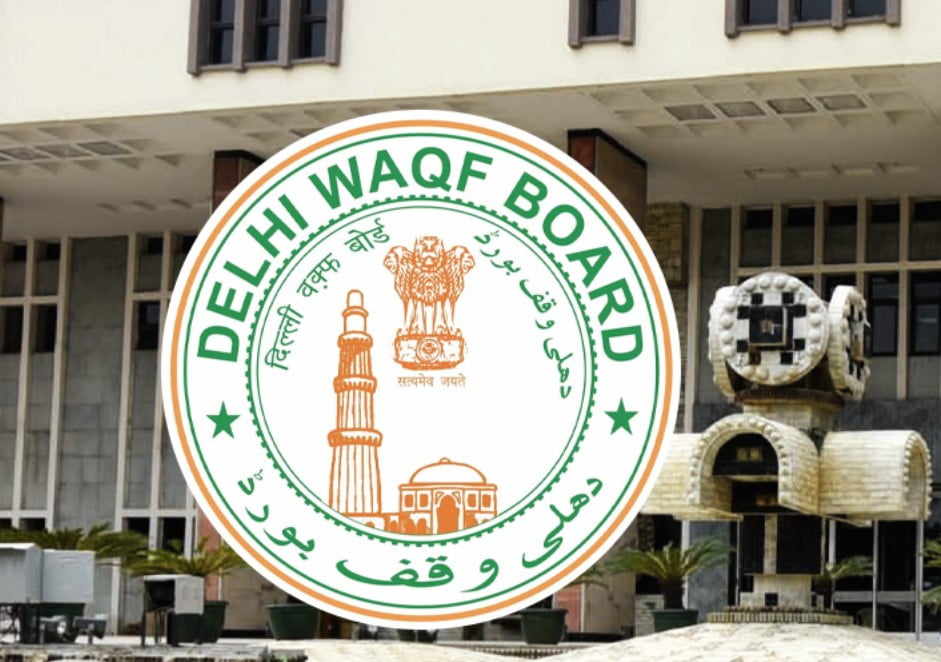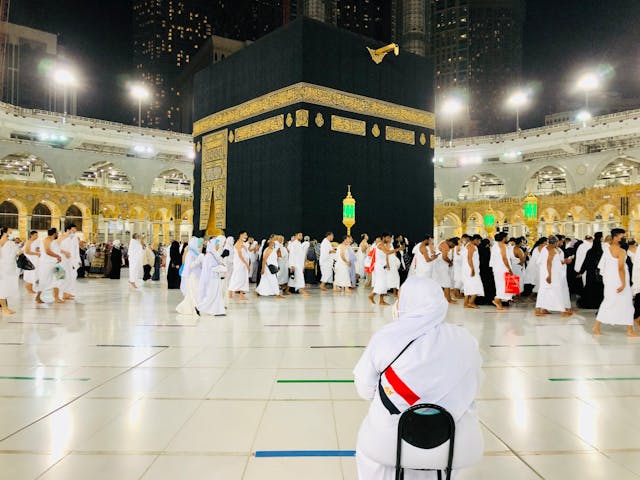In India, there are certain laws and provisions that are specifically aimed at protecting the rights and interests of Muslims and other minorities. These laws are designed to ensure their equitable treatment and safeguard their religious freedoms and cultural identity. Some examples include:
Muslim Personal Law: This refers to laws governing matters such as marriage, divorce, inheritance, and succession among Muslims. These laws are based on Islamic principles and are applicable to Muslims in India. For instance, the Muslim Personal Law (Shariat) Application Act, 1937, allows Muslims to be governed by their personal laws in matters of family and inheritance.

Waqf Act: The Waqf Act, 1995, governs the administration and management of waqf properties, which are charitable endowments created by Muslims for religious or charitable purposes. Waqf properties are managed by Waqf Boards, which oversee their use and maintenance for the benefit of the Muslim community.

Hajj Subsidy : It aims to enhance accessibility and affordability for pilgrims. Under the updated policy, the entire government discretionary quota will be merged into the general pool, benefiting all citizens. Furthermore, the allocation ratio has been adjusted to allocate 80% to the Haj Committee of India (HCol) and 20% to private Haj group operators. Additionally, the policy includes measures to reduce Haj package costs by approximately Rs 50,000. These savings result from exempting charges for foreign exchange deposits and providing flexibility for pilgrims to arrange certain items themselves. Notably, the policy emphasizes inclusivity by requiring persons with benchmark disabilities to be accompanied by an able-bodied blood relation. Similarly, elderly pilgrims above 70 years of age are encouraged to travel with companions, ensuring their safety and well-being during the pilgrimage. Overall, these measures underscore the Indian government’s commitment to facilitating a smooth and enriching Haj experience for all pilgrims.
Protection of Minorities: Various provisions in the Indian Constitution and other laws protect the rights of religious and linguistic minorities, including Muslims. These provisions aim to ensure equal opportunities and protection against discrimination for minority communities.
Reservations: In some states, there are provisions for reservations in educational institutions and government jobs for minority communities, including Muslims. These reservations are aimed at promoting educational and socio-economic development among disadvantaged groups.
Imams Salary: In a notable decision nearly three decades ago, the Supreme Court of India instructed the Delhi government to provide monthly stipends to Imams serving mosques in the city. Even Delhi Chief Minister Arvind Kejriwal addressed a gathering of Imams and increased the remuneration from Rs 10,000 to Rs 18,000 a month, ostensibly for the sake of the vote bank.
Steps taken by PM Modi government to empower the minorities of India
The decision to abolish the practice of triple talaq, wherein a Muslim man could divorce his wife by uttering the word “talaq” (divorce) three times, without her consent or involvement, was a significant step towards ensuring gender equality and justice for Muslim women in India. Here are some advantages of this decision in the context of the development of the Muslim community:
Empowerment of Muslim Women: By abolishing the practice of triple talaq, the Indian government, under Prime Minister Modi, empowered Muslim women to have a say in their marital status and ensured that they are not unilaterally subjected to divorce without their consent or involvement. This empowers them to lead more secure and dignified lives.
Legal Protection: The abolition of triple talaq provided legal protection to Muslim women against arbitrary and instant divorces, which often left them economically and emotionally vulnerable. This decision ensures that women have the opportunity to seek legal recourse and address disputes in a fair and transparent manner.
Promotion of Gender Equality: By eliminating triple talaq, the Indian government promoted the principles of gender equality and justice within the Muslim community. It sends a message that women’s rights are fundamental and must be upheld irrespective of religious or cultural practices.
Social Cohesion: By addressing discriminatory practices like triple talaq, the government fosters greater social cohesion and inclusivity within the Muslim community and the broader Indian society. It promotes a more harmonious environment where the rights and dignity of all individuals, regardless of gender or religious affiliation, are respected and protected.
Modernization and Progress: The abolition of triple talaq reflects India’s commitment to modernization and progress by aligning its legal framework with contemporary principles of human rights and gender justice. It demonstrates that the government is responsive to the evolving needs and aspirations of its citizens, including those from minority communities.
Overall, the decision to abolish triple talaq by the PM Modi government represents a significant step towards the empowerment and development of Muslim women in India, while also contributing to the broader goals of gender equality, social justice, and inclusive development within the Muslim community and the country as a whole.
As estimated in 2019, around 204 million Muslims resided in India making India’s Muslim population the world’s third largest and the world’s largest Muslim-minority population.
India’s Commitment to Inclusivity and Equality
Draupadi Murmu, the President of India, is from the Santal tribal community, which is considered a minority group in India. The Santal tribe is one of the largest indigenous communities in India, primarily residing in the states of Jharkhand, West Bengal, Odisha, and Bihar. As a member of the Santal tribe, Draupadi Murmu represents a minority group in terms of ethnicity and socio-economic status. India is a country with rich cultures, languages, and religions, and promoting inclusivity in governance reflects its democratic principles. Electing a President from a minority group can send a message of unity and equality, demonstrating that individuals from all backgrounds have the potential to lead the nation
More from NewsBuzz1 – Indian Minority Dynamics and Western Sensationalization

